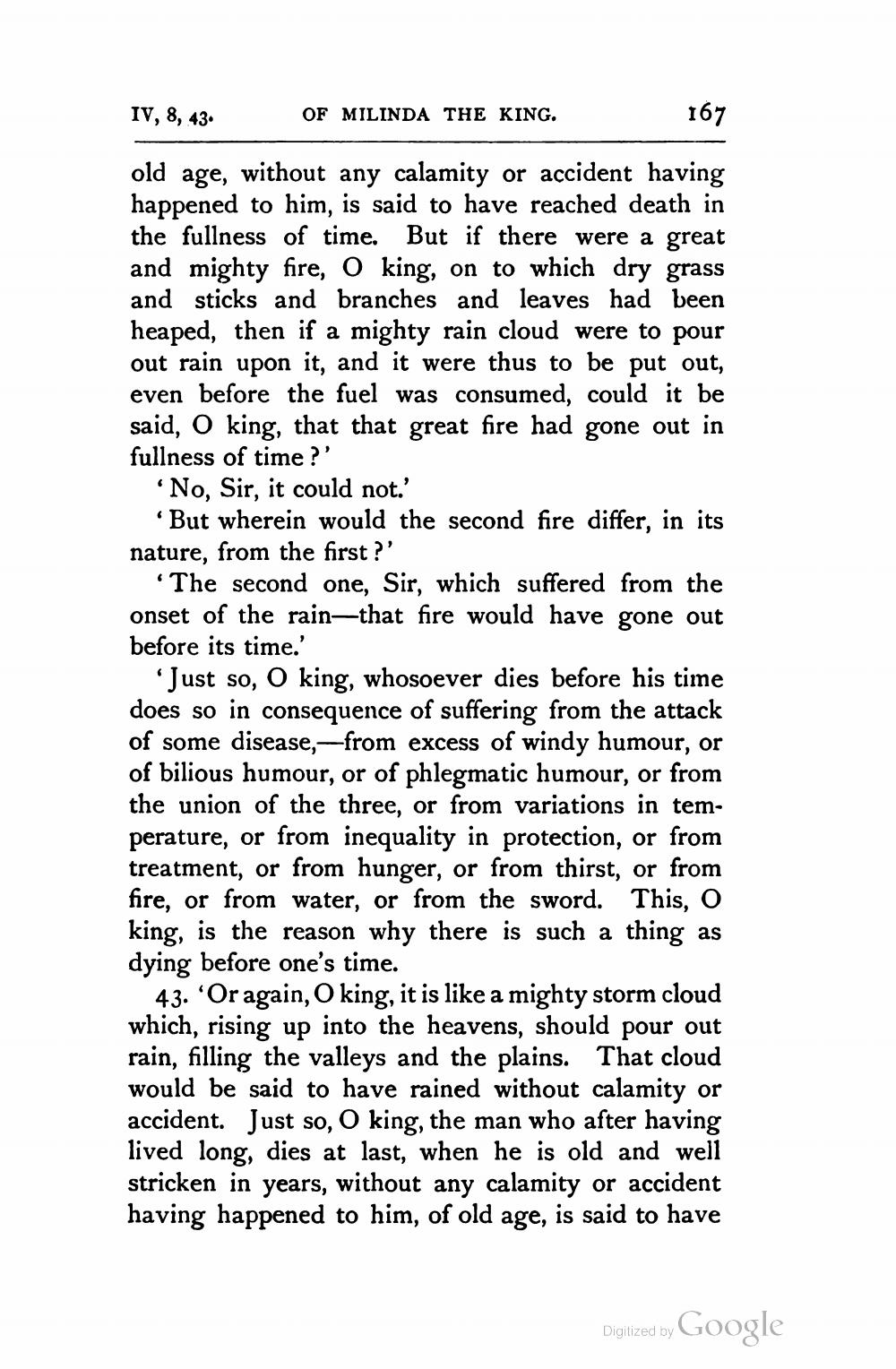________________
IV, 8, 43.
OF MILINDA THE KING.
167
old age, without any calamity or accident having happened to him, is said to have reached death in the fullness of time. But if there were a great and mighty fire, o king, on to which dry grass and sticks and branches and leaves had been heaped, then if a mighty rain cloud were to pour out rain upon it, and it were thus to be put out, even before the fuel was consumed, could it be said, O king, that that great fire had gone out in fullness of time?' 'No, Sir, it could not.'
But wherein would the second fire differ, in its nature, from the first ?'
The second one, Sir, which suffered from the onset of the rain—that fire would have gone out before its time.'
Just so, O king, whosoever dies before his time does so in consequence of suffering from the attack of some disease, - from excess of windy humour, or of bilious humour, or of phlegmatic humour, or from the union of the three, or from variations in temperature, or from inequality in protection, or from treatment, or from hunger, or from thirst, or from fire, or from water, or from the sword. This, O king, is the reason why there is such a thing as dying before one's time.
43. 'Or again, O king, it is like a mighty storm cloud which, rising up into the heavens, should pour out rain, filling the valleys and the plains. That cloud would be said to have rained without calamity or accident. Just so, O king, the man who after having lived long, dies at last, when he is old and well stricken in years, without any calamity or accident having happened to him, of old age, is said to have
Digitized by Google




